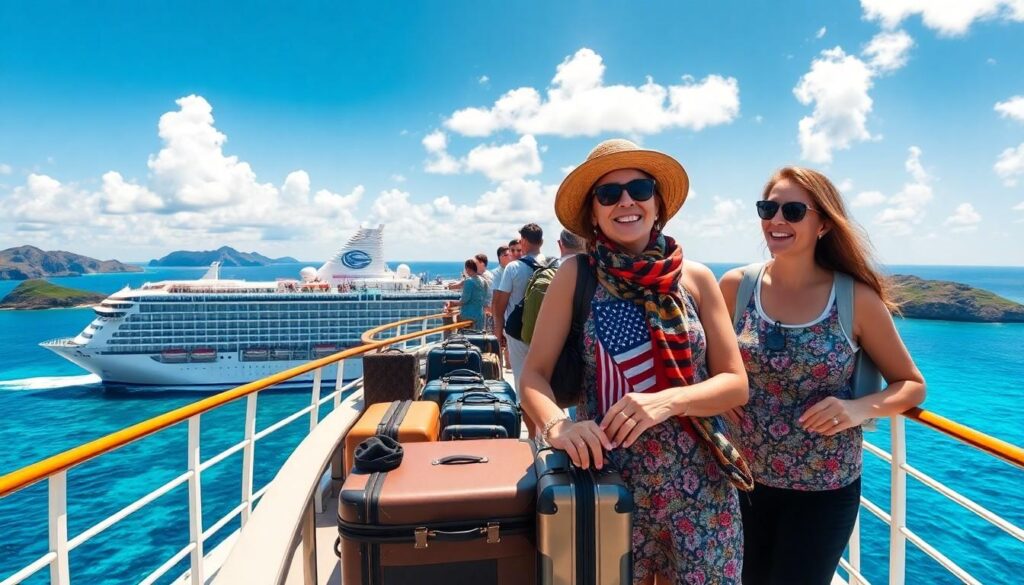Setting sail on a cruise is like stepping into a floating paradise, where sun-kissed decks and endless buffets await. But before you trade your land legs for sea legs, there’s one essential item you shouldn’t overlook: travel insurance. Think of it as your safety net, ready to catch you if your dream vacation turns into a comedy of errors—like losing your luggage or getting seasick during the captain’s dinner.
Table of Contents
ToggleUnderstanding Travel Insurance on a Cruise
Travel insurance serves as an essential component of preparation for any cruise. Facing uncertainties like trip cancellations or medical emergencies becomes more manageable with adequate coverage.
What Is Travel Insurance?
Travel insurance protects against unforeseen events during a trip. Coverage typically includes trip cancellation, medical expenses, lost luggage, and emergency evacuation. Specific policies may vary but generally offer a range of plans tailored to individual needs. Many travelers choose to purchase a policy covering their entire journey, ensuring peace of mind while at sea.
Why Do You Need It for a Cruise?
Cruises involve unique risks distinct from land-based travel. Incidents such as missed port departures or onboard accidents can occur. Medical emergencies may happen at sea, where access to care might be limited. Preparing for trip cancellations due to severe weather can save significant costs. Travelers benefit from financial protection, allowing them to enjoy their experience without worry. Additionally, policies covering emergency evacuations ensure safety from unexpected situations, reinforcing the necessity of travel insurance for cruises.
Types of Coverage Available

Travel insurance for a cruise encompasses various types of coverage tailored to travelers’ unique needs. Understanding these options enables better preparation for unforeseen events.
Trip Cancellation Insurance
Trip cancellation insurance provides financial protection against non-refundable expenses. It covers costs associated with canceling a cruise due to unforeseen circumstances such as illness, family emergencies, or natural disasters. Many policies reimburse travelers for prepaid expenses like cruise fares and excursions. Depending on the provider, some policies also allow travelers to cancel for any reason, increasing flexibility. Reviewing policy details ensures coverage aligns with specific travel plans.
Medical Coverage
Medical coverage is vital when cruising, given the limited access to healthcare at sea. This insurance typically covers emergency medical expenses incurred while traveling. It includes hospital stays, doctor visits, and necessary medications. Some policies expand coverage for both medical evacuation and repatriation, ensuring travelers receive care promptly. Travelers often find peace of mind knowing they can seek medical attention without incurring substantial out-of-pocket costs.
Baggage Loss and Delay Insurance
Baggage loss and delay insurance protects against lost or delayed luggage during a cruise. This coverage reimburses travelers for personal belongings lost in transit and expenses for purchasing essential items during delays. Policies usually define specific limits on reimbursements, so understanding these limits is crucial. Some insurance options even extend to cover valuables left behind or stolen during excursions. Always check the policy to ensure it meets individual travel needs.
Factors to Consider When Choosing Travel Insurance
Selecting the right travel insurance for a cruise involves careful consideration of several key factors.
Destination and Itinerary
Cruise destinations play a significant role in insurance decisions. Popular ports like the Caribbean or Mediterranean may have different health risks and regulations than remote destinations. Understanding these aspects helps in choosing suitable coverage. Travelers should check for potential natural disasters or political instability that may affect their itinerary. Some policies offer enhanced benefits for specific locations. Researching destinations ensures policies align with potential risks and guarantees effective coverage.
Duration of the Cruise
The cruise duration significantly impacts insurance needs. Shorter trips might require basic coverage, while longer journeys necessitate comprehensive plans. Extended cruises often encounter unique risks, like medical emergencies or itinerary changes, in remote areas. Inspection of coverage limits for trip cancellations and emergency evacuations becomes crucial. Policies with higher coverage limits provide greater peace of mind for longer cruises. Checking each policy’s duration compliance is essential in ensuring adequate protection throughout the entire journey.
Pre-existing Medical Conditions
Pre-existing medical conditions present a unique challenge when choosing travel insurance. Travelers must disclose these conditions during the application process. Some policies provide waivers that offer coverage for pre-existing issues if purchased within a specific timeframe. That’s why understanding policy specifics impacts decision-making. Each traveler’s medical history is different and should influence coverage choices. Evaluating the adequacy of medical coverage in relation to existing health issues cannot be overlooked.
How to Purchase Travel Insurance
Purchasing travel insurance for a cruise involves choosing between options that suit individual needs. Travelers can explore various avenues for securing the necessary coverage.
Directly Through Cruise Lines
Many cruise lines offer travel insurance as an add-on during the booking process. These policies often cover trip cancellations and emergencies specific to the cruise experience. Booking through a cruise line simplifies the process, as it typically includes coverage tailored to their itineraries. However, options may be limited compared to third-party providers. Travelers might find that the premiums are higher, yet the convenience can outweigh the cost.
Third-Party Insurance Providers
Third-party insurance providers present alternative options for travelers seeking customized coverage. These companies typically offer a variety of policies, allowing travelers to select plans based on specific needs. Shopping around can help identify comprehensive packages, especially those that include emergency evacuations and pre-existing condition waivers. Comparing multiple quotes ensures travelers find the best value for their coverage. Furthermore, policies from these providers often include higher coverage limits, enhancing protection for unique cruise risks.
Travel insurance is a vital aspect of cruise planning that shouldn’t be overlooked. With the potential for unexpected events like medical emergencies or lost luggage, having the right coverage allows travelers to fully enjoy their journey. By understanding the various types of insurance available and evaluating personal needs, cruisers can select policies that provide adequate protection.
Whether opting for cruise line insurance or exploring third-party providers, comparing options ensures travelers find the best fit for their unique circumstances. Ultimately, investing in travel insurance not only safeguards against unforeseen challenges but also enhances peace of mind, allowing for a truly memorable cruise experience.





